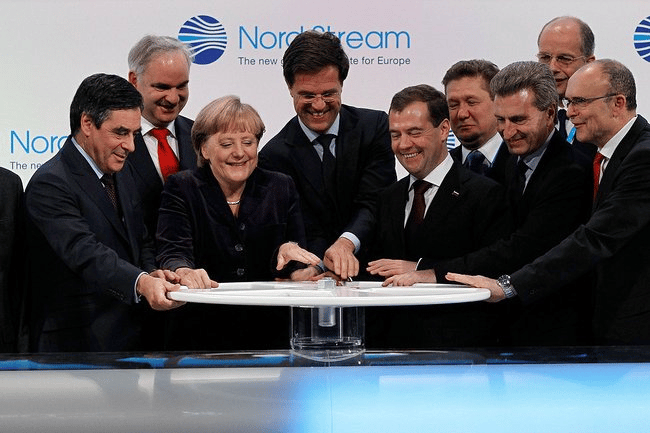
Winter is coming: Europe’s huge geopolitical blunder on Russian energy
Posted: 18th October 2022
By Michal Wyrebkowski, Wiktor Babinski | October 14, 2022

German Chancellor Angela Merkel, French Prime Minister François Fillon, Russian President Dmitry Medvedev, and other world leaders at the November 8, 2011, launch ceremony for the first leg of the Nord Stream gas pipeline. Credit: Office of the President of Russia
As winter approaches, European governments are preparing to weather a storm that threatens not only the comfort and safety of their citizens, but also the recently regained Western unity on foreign policy. The looming “energy crisis” is widely discussed at high-minded conferences, in parliamentary speeches, and in the media—where politicians use it to make and deflect accusations, and tabloid headlines warn that doomsday is descending on Europe.
How did it come to pass that some of the world’s richest countries are fearing for their ability to heat homes in the winter? And why did a significant part of the most secure military alliance in contemporary history allow itself to become dependent on a potential geopolitical rival that had long shown alarming intentions?